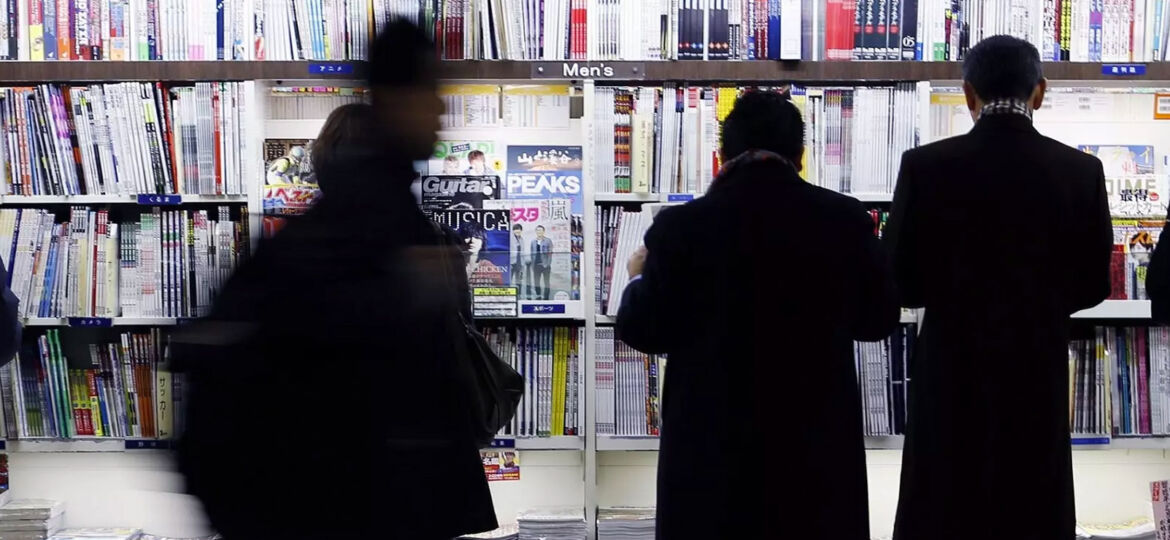
WHY THIS MATTERS IN BRIEF
AI’s that can predict outcomes from users behaviours are becoming increasingly common, and one of the biggest beneficiaries of that is the area of pre-crime detection.
It’s watching, and knows a crime is about to take place before it happens – this is the world of pre-crime, and whether it’s detecting people with criminal intent from a photo, liars, or just being used to single out guilty people from just their brainwaves it’s getting better all the time. Now Vaak, a Japanese start up, has developed Artificial Intelligence (AI) pre-crime technology that hunts out potential shoplifters, using footage from security cameras for fidgeting, restlessness and other potentially suspicious body language.
While AI is usually envisioned as a smart personal assistant or self-driving car, it turns out the technology is pretty good at spotting nefarious behaviour too. Like a scene out of the movie “Minority Report,” algorithms analyse security camera footage and alert staff about potential thieves via a smartphone app. The goal is prevention, if the target is approached and asked if they need help, there’s a good chance the theft never happens.
Vaak made headlines last year when it helped to nab a shoplifter at a convenience store in Yokohama. Vaak had set up its software in the shop as a test case, which picked up on previously undetected shoplifting activity. The perpetrator was arrested a few days later.
“I thought then, ‘Ah, at last!’” said Vaak founder Ryo Tanaka, 30. “We took an important step closer to a society where crime can be prevented with AI.”
Shoplifting cost the global retail industry about $34 billion in lost sales in 2017 — the biggest source of shrinkage, according to a report from Tyco Retail Solutions. While that amounts to approximately 2 percent of revenue, it can make a huge difference in an industry known for razor-thin margins.
The opportunity is huge. Retailers are projected to invest $200 billion in new technology this year, according to Gartner, as they become more open to embracing technology to meet consumer needs, as well as improve bottom lines.
“If we go into many retailers whether in the US or UK, there are very often going to be CCTV cameras or some form of cameras within the store operation,” said Thomas O’Connor, a retail analyst at Gartner. “That’s being leveraged by linking it to an analytics tool, which can then do the actual analysis in a more efficient and effective way.”
Because it involves security, retailers have asked AI software suppliers such as Vaak and London based Third Eye Labs not to disclose their use of the anti-shoplifting systems. It’s safe to assume, however, that several big-name store chains in Japan have deployed the technology in some form or another. Vaak has met with or been approached by the biggest publicly traded convenience-store and drugstore chains in Japan, according to Tanaka.
Big retailers have already been adopting AI technology to help them do business. Apart from inventory management, delivery optimization and other enterprise needs, AI algorithms run customer-support chatbots on websites. Image and video analysis is also being deployed, such as Amazon’s Echo Look, that gives users fashion and style advice.
“We’re still just discovering all the market potential,” Tanaka said. “We want to keep expanding the scope of the company.”
Founded in 2017, Vaak is currently testing in a few dozen stores in the Tokyo area. The company began selling a market-ready version of its shoplifting-detection software this month, and is aiming to be in 100,000 stores across Japan in three years. It has 50 million yen ($450,000) in funding from SoftBank Group’s AI fund, and is in the middle of its series A round, seeking to raise 1 billion yen.
What makes AI based shoplifting detection a straightforward proposition is the fact that most of the hardware, security cameras, is usually already in place.
“Essentially this is using something that’s been underutilized for decades,” said Vera Merkatz, business development manager at Third Eye. Founded in 2016, the startup offers services similar to Vaak in the UK market, where it has a deal with a major grocery chain.
The ability to detect and analyse unusual human behaviour also has other applications. Vaak is developing a video based self-checkout system, and wants to use the videos to collect information on how consumers interact with items in the store to help shops display products more effectively. Beyond retail, Tanaka envisions using the video software in public spaces and train platforms to detect suspicious behaviour or suicide jumpers. Meanwhile at Third Eye, Merkatz said she’s been approached by security management companies looking to leverage their AI technology.
“The potential is broad since it can be applied outside of shoplifting prevention and outside of retail – such as with manufacturing or other types of marketing,” said Hiroaki Ando, a retail consultant at Ernst & Young Advisory & Consulting Co. in Tokyo.

















[…] providers to spot shoplifters prior to the actual theft of the product. In fact, Japanese startup Vaak uses AI to identify potential shoplifters using body language and other physical […]